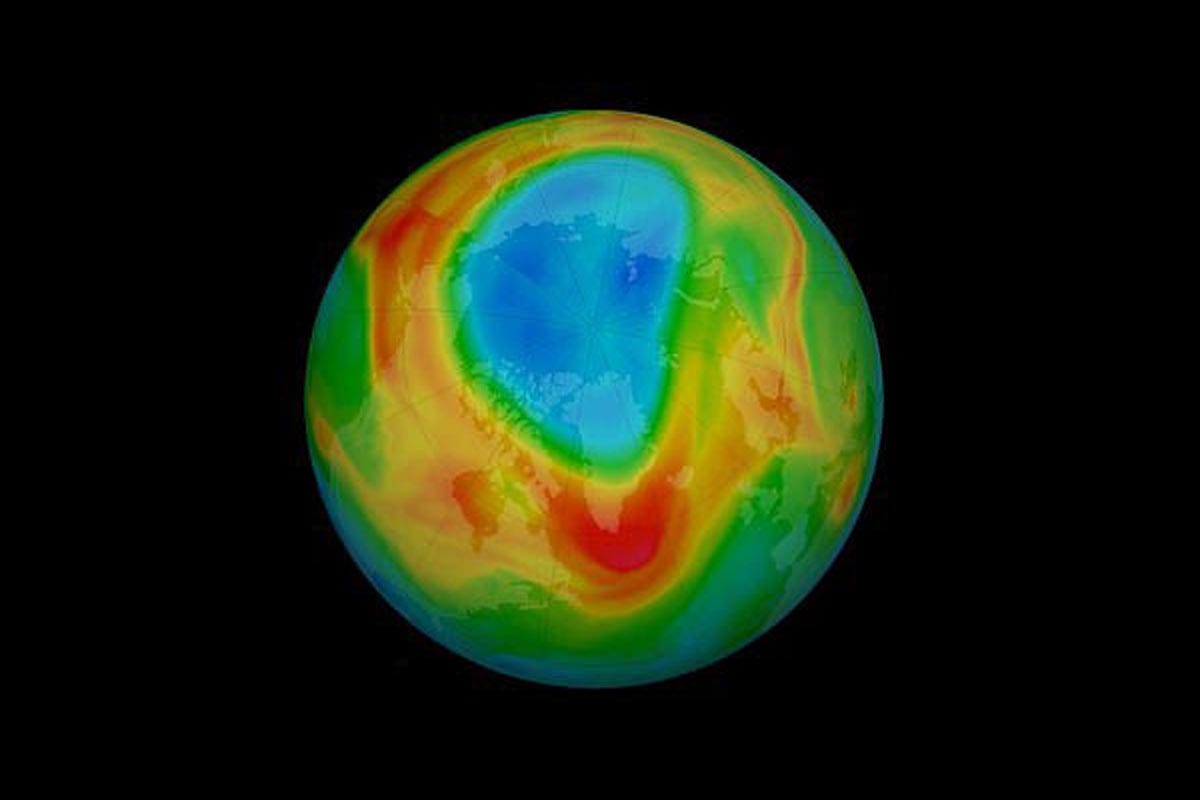The Climate Challenge is Now: How Words Work
Our challenge? We have to get our climate back in balance.
We need to start using the term, “climate challenge.” Why? Because some words trigger behavioral expectations. What do you do when faced with a challenge? You step up and meet that challenge. What is our challenge? Our climate is out of balance. What do you do when something is out of balance? You restore balance.
If you want to reframe the debate, you have to understand how words work.
People are always asking me for the one magic word or phrase that will change the public debate on a particular issue. I usually respond by saying that it just doesn’t work that way. You have to have a whole perspective. That perspective has to have a moral narrative. Only then can you find the words that trigger that moral narrative.
HOWEVER, that is not entirely true. Sometime words work all by themselves. Sometimes words have an entire narrative already baked in.
Thank you for reading Reframing America! This is a reader-supported publication. To receive new posts by email please consider becoming a subscriber. All content is free, but some people choose to become paying subscribers to support this important mission!
What are behavioral expectations?
When we attach a word to something happening in the public debate, what we’re trying to do is transfer attributes from the commonly understood meaning of that word (it’s frame) to the situation at hand. There are lots of different kinds of attributes that can be transferred. In this case, we’re talking about applying behavioral expectations.
When we say “behavioral expectations” we mean that some words automatically compel people to respond in a particular way. These expectations are conveyed through “scenarios.” A scenario lays out what we expect to happen, like the storyboard of a movie script.
There’s a hole in the bucket.
Consider the word hole, as in, “There’s a hole in the bucket.” Here is the scenario of the hole frame:
Something develops a hole. The hole is discovered. Oh no! If the hole isn’t fixed, stuff will fall through the hole, and that would be bad. We must fix the hole! We do fix the hole. Yay! The day is saved.
All by itself, the word hole triggers the expectation that we respond in a way that seems like “the right thing to do” in the context of that “fixing the hole” scenario.
There’s a hole in the ozone layer.
Anyone remember the “Hole in the Ozone Layer?” We had this problem. The layer of ozone in our stratosphere was thinning. Technically speaking, it wasn’t actually a hole, but some very, very smart people decided to call it a hole anyway!
The scenario from the hole frame got applied to the situation like this:
A layer of our atmosphere that protects us developed a hole. Scientists discovered the hole. We need to close the hole so that dangerous radiation couldn’t get through. We did! Yay!
The hole frame worked. Call anything a hole, and fixing it is the logical thing to do. Our response turned out to be the single most successful international environmental effort in human history.
Moral Judgment
I frequently talk about the idea that all political decisions are based on moral judgement. Not the religion kind of moral. The basic, “What’s the right thing to do?” kind of moral.
Behavioral expectations work because they provide criteria for judging right and wrong: Acting how you are expected to act is right: failing to act as expected is wrong. We literally call it “failing” as in “failing to live up to expectations.”
Would people have reacted as well if we called the problem a “thinning of the ozone layer”? Who knows. Unlike “hole,” the word “thinning” does not come with clear behavioral expectations or the moral judgment they convey.
Do These Words Work?
Climate Change and Global Warming
When things change, what do you do? It depends. Is the change good or is it bad? You could fight the change or you could adapt to it, or even embrace it. There’s no clear answer.
When something is getting warmer, what do you do? It depends. If you are talking about weather in the Spring, you enjoy it.
Neither the word “change” nor the word “warming” come with useful behavioral expectations. They also lack ways of helping us visualize positive outcomes.
If you are arguing that temperatures going up are causing all these problems, it is easy for people to connect things like heat waves and droughts to global warming, or melting glaciers and wild fires. These things are all consistent with mental images having to do with heat. Still, it is easy to create doubt about scientific connections between “warming” and other outcomes, like tropical storms, tornadoes, rising water levels, “polar vortexes” and so on.
“Warming” doesn’t create a vision of what happens when things get fixed. Do we really feel like “cooling” would solve the problems? Does the idea of cooling feel emotionally satisfying? If you are in Phoenix, maybe. Otherwise, once again, it depends.
Stopping “change” doesn’t help us visualize the situation being actually fixed. You can’t undo change. Can you change back?
Change is inevitable.
Perhaps that’s why Republican language guru Frank Luntz (author of the brilliant but evil book, “Words That Work” which I highly recommend) got us all to start using “climate change” instead of “global warming.”
Luntz did some focus groups and found that the term “climate change” caused people to feel less urgent about taking action than “global warming.’ By getting us all to adopt the term “climate change” he may have subconsciously made us think of the process as more inevitable, and made us feel less capable of doing anything about it.
The Climate Crisis
What do people do in a crisis? It depends. If it’s the 12th crisis in a row (as in the Covid crisis, lockdown crisis, economic crash crisis, Jan 6th insurrection crisis, Delta crisis, inflation crisis, Omicron crisis, baby formula crisis, democracy crisis, gas prices crisis, Roe v. Wade crisis, etc.) you might have a meltdown.
You might go buy some Haagen Dazs and crawl into bed, or retreat into binge watching. (Although if you are binge watching “Stranger Things”, you aren’t going to get a whole lot of escape from crises.)
What happens when people face too many crises? They often go into denial. Denial, especially denial of science, drives conspiratorial thinking. Global warming denial? Covid denial? Yup. We’re already there.
Climate crisis may still work, but right now, it has way too much competition.
Words That Might Work
The Climate Challenge
What do we actually want people to do about climate change? We need them to step up and do what needs to be done. What causes people to step up and do what needs to be done? A challenge.
The word challenge comes with behavioral expectations that could work to our advantage. When faced with a challenge, people who rise to the occasion are heroes and people who pretend it isn’t happening are cowards. Stepping up in the face of a challenge is morally the “right thing to do.”
What exactly is the challenge we are dealing with?
Our climate is out of balance.
The word balance has its own behavioral expectations. What do you do when something is out of balance? You have to restore balance.
“Out of balance” is a better description of what is happening to our planet. What happens when things get out of balance? All sorts of craziness. “Teetering on the brink of chaos” even.
If our climate is out of balance, things feel threatening and unpredictable. Being out of balance means things that could spin out of control and crash to the ground at any moment. That feels like an emotionally appropriate description of a situation in which scientists are freaking out about the possibility of the gulf stream stopping working, a possibility that literally keeps me up at night.
The phrase “out of balance” also contains its solution: “the restoration of balance.”
Balance is what we seek, what we strive for. “Restoring balance” brings us stability and peace. Just as the word “change” makes the climate situation seem inevitable and irreversible, the term “out of balance” motivates us, compels us to take action to stabilize and re-balance it.
Visualizing a climate that is back in balance is a positive incentive to reap huge emotional rewards. That is the best way I can think of to motivate a crisis-weary populace.
The Bottom Line:
When it comes to the state of our climate, the best way to motivate crisis-weary people to do what we need them to do, is to talk about it in terms, not of crisis, but of challenge. The phrase “climate challenge” contains within it a moral call to step up, to face the situation head on.
Our challenge is to restore balance to a climate that is out of balance. The idea of an out-of-balance climate makes sense of the threat and uncertainty we are experiencing right now. It also motivates us in a positive way, by helping us to visualize a satisfying result: a climate back in balance.
Ruminate on this for a while, because next up is:
How to Fix the Weather: Changing the (Time) Frame in the Climate Debate







